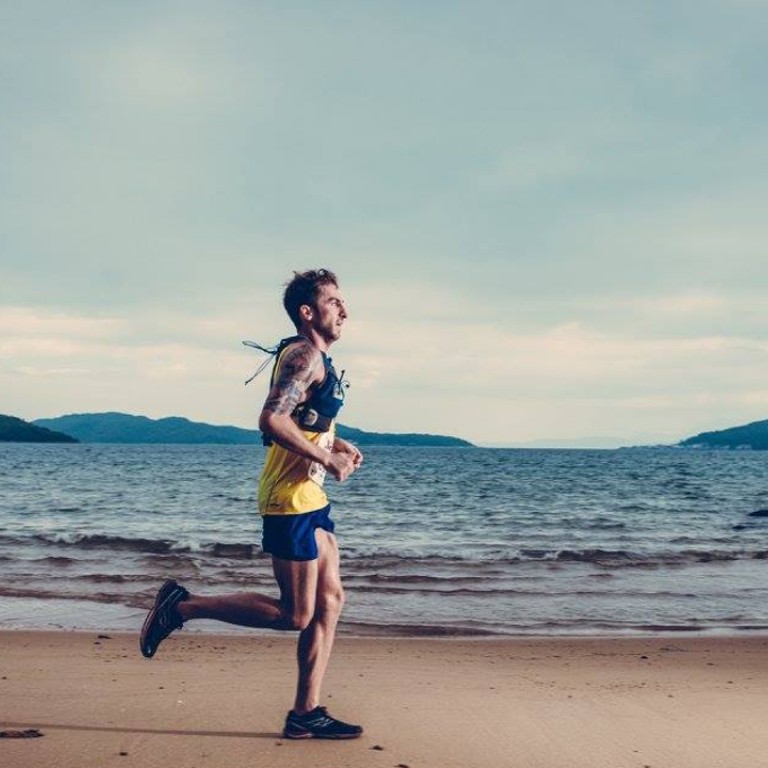
Vegan protein just as effective as meat and dairy for sports – if you get the mix right
Legumes, seeds, rice flax and soy can be potent sources of protein for those who are lactose intolerant or don’t eat meat
The idea of consuming protein to build muscles used to conjure up images of a burly man slugging down raw eggs or a whey protein shake. These days, not only have protein boosts gone mainstream, it’s increasingly sourced from vegetables rather than animals.
Vegan proteins from sources such as pea, chia, flax, soy, rice and hempseed are on the rise, according to health food experts.
SEE ALSO: Road test: 5 vegan protein products to help get you ripped
“The perks of vegan proteins – besides animal welfare – are mostly digestive-issue related advantages. Too often we struggle with slight intolerances, and milk proteins affect most people. If someone feels too bloated or uncomfortable after an animal protein shake with milk protein, I’d recommended switching,” says nutritionist Tanja Guigon-Rech of Nutrition Nation.

Testament to the value of the industry was the recent sale in June of vegetarian health and performance nutrition products brand Vega for US$550 million.
Oliver Foxon, 30, a marketing manager, is a convert from dairy-based to vegan proteins. “I feel less bloated and don’t experience lactose-induced mucus, which I used to experience normally when I consumed any dairy, particularly in my protein powders.”
He supplements his active lifestyle with NuZest’s Clean Lean Protein, made of pea protein. Moral reasons also come into the equation, he explains: “If I can get the same nutrients without creating a need for dairy production I will do it. My whole philosophy now is about harm reduction and making small, easy changes first.”
Protein was identified as a functional food ingredients trend in 2014, as consumers sought out protein-fortified foods for athletic performance and recovery, to stave off loss of muscle mass with ageing, to help with weight loss and management, curbing appetite and promoting satiety.
But do we need all that extra protein, and is vegetarian really best?
Guigon-Rech says it doesn’t take much to meet daily requirements. “An average male will meet the Australian Dietary Guidelines if he eats 0.84 grams of protein per kilogram of bodyweight a day.”
For females, the guidelines stipulate 0.75 grams per kilogram of bodyweight. That’s 45 grams for a 60kg woman, which even on a meat-free diet would be met in a day by eating half a cup of oats with 10 almonds (16 grams of protein), 100 grams of quinoa at lunch (14 grams), one boiled egg (13 grams) and 100 grams of hummous (eight grams) – a total of 48 grams of protein.
For a 75kg man, an extra 100-gram serving of yogurt (10 grams of protein) and one slice of cheese (seven grams) would bring his total to 65 grams – exceeding his recommended 63 grams of protein a day.
But if you’re regularly active, particularly if you’re an endurance athlete, you need to up those numbers significantly say experts.

Professors Phillips and Van Loon from the Department of Kinesiology at McMaster University in Canada published an opinion in the Journal of Sports Science in 2011 suggesting 1.3 to 1.8 grams of protein per kilogram of bodyweight was needed to “maximise muscle protein synthesis” in athletes.
“But if you’re eating a well-balanced diet, or are not overly active, you may not require any extra supplementation,” cautions Guigon-Rech.
Ultrarunner Vlad Ixel, a dedicated vegan, says he rarely supplements his diet with protein despite training upwards of six hours a day. He prefers to get his protein from mostly chia seeds, greens and nuts, totaling around 20 grams a day, as well as his favourite dish of hummus. Yet he is still at the top of his game.

Simply ingesting protein doesn’t mean your body has more protein. Foods simply supply amino acids, from which the body makes its own proteins. There are different types, some better than others.
“Animal proteins, due to their amino acid makeup, are more similar to the proteins found in the body and tend to be complete proteins, meaning they contain most, if not all of the essential amino acids,” explains Dr Michael Tse from Hong Kong University’s Active Health Clinic and Institute of Human Performance.

Guigon-Rech elaborates. “The cons of vegan proteins are that if they are not combined correctly, they often don’t build a full protein complete with essential amino acids which our body can use to rebuild our cells and meet its protein needs in a day.
“But if you find a really good protein mix which combines different plant-based proteins that are biologically available as a full protein – like brown rice protein laced with other plant proteins to make a complete protein – this is a good option.
“If you’re not a vegetarian or vegan, eating animal proteins within your usual diet plus vegan shakes to supplement can be a really good nutritional mix.”
At the end of the day, Tse believes plant-based proteins are sufficient to supplement performance. “Other than for individuals whose main goal is to build very large muscles, excessive consumption of protein is really not necessary and plant-based proteins are, for the most part, just as good.”
